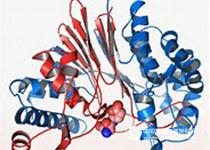
Herpes simplex virus (HSV) infection lasts for a lifetime. Once a person is infected, the virus can remain dormant (latent) for many years and then periodically restart, causing recurrent disease. This cycle of little knowledge has made scientists frustrated for years. Now, scientists at the National Institutes of Health (NIH) have identified a group of protein complexes that are clustered into viral genes while stimulating initial infection and reactivation. Known stress environments that regulate these proteins also cause reactivation.
The World Health Organization estimates that 500 million people worldwide are infected with HSV-2 and two-thirds of the population are infected with HSV-1. These viruses can cause many diseases, from oral colds to genital damage and serious eye diseases that cause blindness. In infants, HSV can cause nervous system and developmental problems. People infected with HSV also have an increased risk of acquiring or transmitting HIV.
Previously, scientists at the NIH National Institute of Allergy and Infectious Diseases have made some progress in understanding the role of cellular protein HCF-1 in initiating HSV infection and reactivation. HCF-1 and related proteins are recruited to the viral genome for replication and transmission. Previous work identified targets for the suppression of infection and reactivation of therapeutic drugs.
Their latest work in collaboration with researchers at Princeton University identified new HCF-1 protein complexes that play a role in viral infection and reactivation. Scientists have found that they can reactivate potential HSV in a mouse model using compounds that initiate these HCF-1 protein complex components. Interestingly, some of these HCF-1 related proteins are also involved in causing HIV reactivation.
Researchers are continuing to study protein complexes involved in promoting HSV gene expression, infection, and reactivation from latency. The mechanisms that recognize these complexes and understand their function may potentially reveal other goals for the development of new therapeutic agents.
Shanghai Chuangsai Technology has excellent performance, interleukin cytokines, fetal bovine serum, electrophoresis equipment scientific instruments, raw material drug standards, chemical reagents, cell culture consumables, Shanghai Chuangsai, mass products special promotions, welcome to inquire!
Toilet Paper,Jumbo Toilet Rolls Wholesale,Four Ply Toilet Paper,Compact Toilet Paper
DONGGUAN YEE HUP TRADING CO,.LTD , https://www.yeehupacks.com
![<?echo $_SERVER['SERVER_NAME'];?>](/template/twentyseventeen/skin/images/header.jpg)